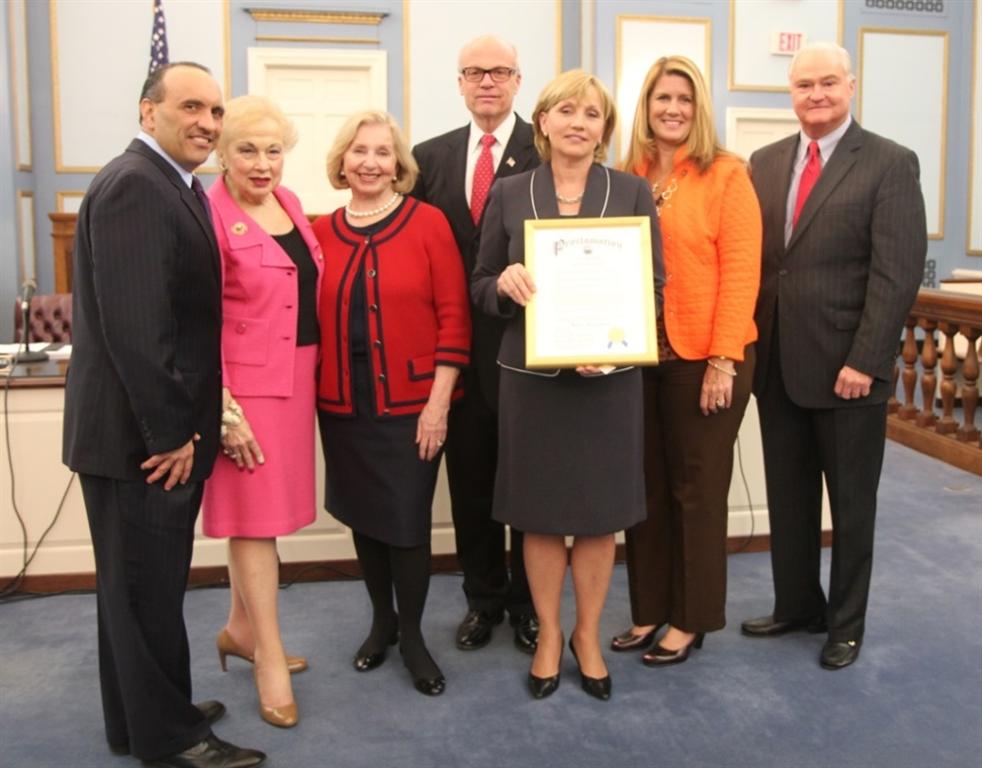For Immediate Release:
March 27, 2015
Freeholders celebrate Women’s History Month
Present proclamation to Lt. Governor Kim Guadagno
FREEHOLD, NJ – The Monmouth County Board of Chosen Freeholders has declared March as Women’s History Month in Monmouth County.

At their regular meeting on March 26, the Board presented a proclamation for Women’s History Month to Lt. Governor Kim Guadagno, Freeholder Lillian G. Burry and Monmouth County Clerk M. Claire French.
“On our five-member freeholder board, two are women; the County administrator is a woman, as are the County Clerk and the County Surrogate,” said Burry, who in 2008 served as the first woman director of the Monmouth County Board of Chosen Freeholders. “We are also joined by Lt. Kim Guadagno, who is the first Lieutenant Governor of New Jersey.”
Women’s History Month honors the contributions of women throughout history. It had its origins as a national celebration in 1981 when Congress passed a law authorizing Women’s History Week. In 1987 it was expanded to include the entire month.
In 1848 a women’s rights convention was held in Seneca Falls, N.Y. At that event, 68 women along with 32 men set the agenda for the women’s rights movement with the adoption of 12 regulations calling for equal treatment under the law.
This era produced strong, vibrant women, such as Margaret Sanger, who in 1916 opened the first birth control clinic in the Unites States, and Alice Paul and Lucy Burns, who used civil disobedience to gain passage of the 19th Amendment giving women the right to vote.
In the mid 20th century, history meant political history. But by the 1970s a new social history began shifting emphasis to a broader spectrum of American life, including the history of urban life, public health, ethnicity, the media and poverty.
“As we gather to celebrate Women’s History Month we pay homage to all of the valiant women who came before us, and we hold the torch high for all of those who will follow,” Freeholder Deputy Serena DiMaso said. “Let us dedicate this month to our mothers, our sisters, our daughters and our granddaughters as American women move forward to face the ever widening challenges of the future.”
# # #